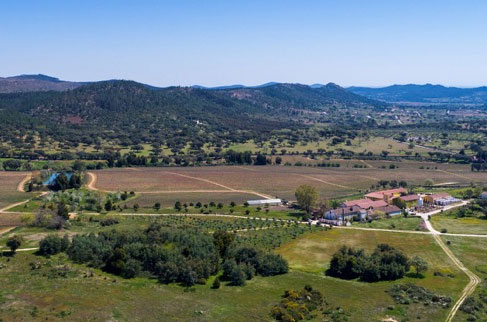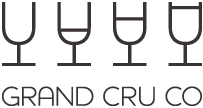Graham’s Port owner buys vineyard outside of Douro
Port and table wine producer Symington Family Estates has ventured outside the Douro Valley with the purchase of a wine estate in the Alto Alentejo area of southern Portugal.
The 207-hectare property includes 43ha of mature vineyard at an altitude of 490-550m in the São Mamede National Park, the highest mountain range in the south of Portugal, Symington said today.
Described as having well-drained soils that are a mix of schist and granite, the vineyard is located in Portalegre, one of the Alentejo’s smallest wine regions, with 841ha of vineyards and a strong influence from the Serra de São Mamede mountain range.
The acquisition is the culmination of a lengthy search by the Symingtons for a suitable vineyard in the Alentejo, with the family ‘increasingly drawn’ by the area’s soils, temperate climate and increasing wine quality.
The Symingtons will start from scratch, making all the wines themselves, and elected not to buy any of the remaining stocks of the estate, previously known as Altas Quintas. ‘After 135 years in the Douro our family felt that the time was right to make wine in another great Portuguese region,’ said Rupert Symington.
‘We love the Alto Alentejo and especially the location of this vineyard. We plan to make some exciting and interesting wines here.’ Financial details were not disclosed. For context, estate agency website Green-Acres was this week listing a 10-hectare ‘wine farm’ for sale in Portalegre, in northern Alentejo, for 1.2 million euros.

Winery investor Charles Banks faces fraud fallout
Charles Banks, prolific winery investor and partial owner of Napa Valley’s Mayacamas Vineyards, has indicated that he will plead guilty to one count of federal wire fraud, raising more doubts about his ability to maintain his current involvement in wine. Reporting by Gretchen Greer, Chris Mercer and William Kelley.
It emerged last week that Charles Banks has decided to plead guilty to one count of wire fraud in a case to be heard in San Antonio, Texas, which carries a maximum prison sentence of 20 years. The case was set to be heard on 27 June, reported Napa Valley Register.
Banks was indicted in San Antonio on two counts of fraud in September 2016, after retired San Antonio Spur Tim Duncan claimed that Banks, his longtime financial adviser, had persuaded him to invest over $13 million in Gameday Entertainment, a sport merchandise company partially owned by Banks. Duncan said that he had yet to see any return on his investment.
Banks initially strongly denied any wrongdoing. However, last week, his lawyer indicated that he would plead guilty to one of the counts of fraud. Banks’ case is not directly related to any of the wineries that he has invested in via Terroir Capital, a fund that he founded, but a guilty plea could have repercussions for his role in wine.
Terroir Capital announced that Banks would be ‘stepping back’ as CEO of its Terroir Life winery fund. Chief operating officer Kevin McGee has been promoted to chief executive officer. The fund has said that it will continue operations as normal and is not involved in the Duncan case.
But it emerged that the group faces uncertainty in New Zealand, where it owns Trinity Hill winery in Hawke’s Bay.
New Zealand’s Overseas Investment Office (OIO) said that, in light of Banks’ guilty plea, it would re-consider whether he passed its ‘good character’ test for foreign investors.
It said, ‘The OIO has met with Terroir Winery Fund’s representatives to make it clear that in our view Mr Banks is unlikely to meet his on-going obligation to remain of good character. If Mr Banks is not of good character, then we will seek to have him removed as an individual with control of sensitive land in New Zealand.’ The OIO praised Terroir for voluntarily reporting the issue.
Banks became a key player in wine after purchasing a stake in Napa Valley’s Screaming Eagle in 2006. Upon leaving the cult winery in 2009, he founded Terroir Capital and has since invested in Wind Gap and Qupé wineries in California. Banks is also believed to personally own half of Napa Valley’s historic Mayacamas Vineyards, which is part of a joint-venture with members of the Schottenstein family.
Tasting wine stimulates your brain more than maths, says neuroscientist
Tasting wine engages more of our brain than any other human behaviour, according to the findings of a leading neuroscientist in the US.
From the first sight of the wine bottle to manipulating the wine in your mouth and then swallowing it, there is a ‘tremendous range of sensory, motor and central brain systems involved in a wine tasting’, says Yale neuroscientist Gordon Shepherd.
Taken all together, these processes involve more brain activity than listening to music or solving a complicated maths problem, he argues in his book, Neuroenology: How the Brain Creates the Taste of Wine.
The book explores all of the many complicated neural processes involved in tasting and appreciating wine, including the visual assessment of the bottle and the wine in the glass, and the interplay between the liquid, oxygen and saliva in the mouth – involving complex movements of jaw, tongue, diaphragm and throat.
Molecules in the wine stimulate thousands of taste and odour receptors, according to a report on Shepherd’s book on the NPR website, ‘sending a flavour signal to the brain that triggers massive cognitive computation involving pattern recognition, memory, value judgement, emotion and pleasure’.
Unlike a maths problem – which requires a limited amount of brain activity – assessing wine engages multiple sensory systems, including seeing, smelling and tasting.
Shepherd’s findings come after a study was reported last September in the Frontiers in Human Neuroscience journal, arguing that Master Sommeliers require so much mental agility to make the grade that the sensory part of their brains becomes physically thicker.




